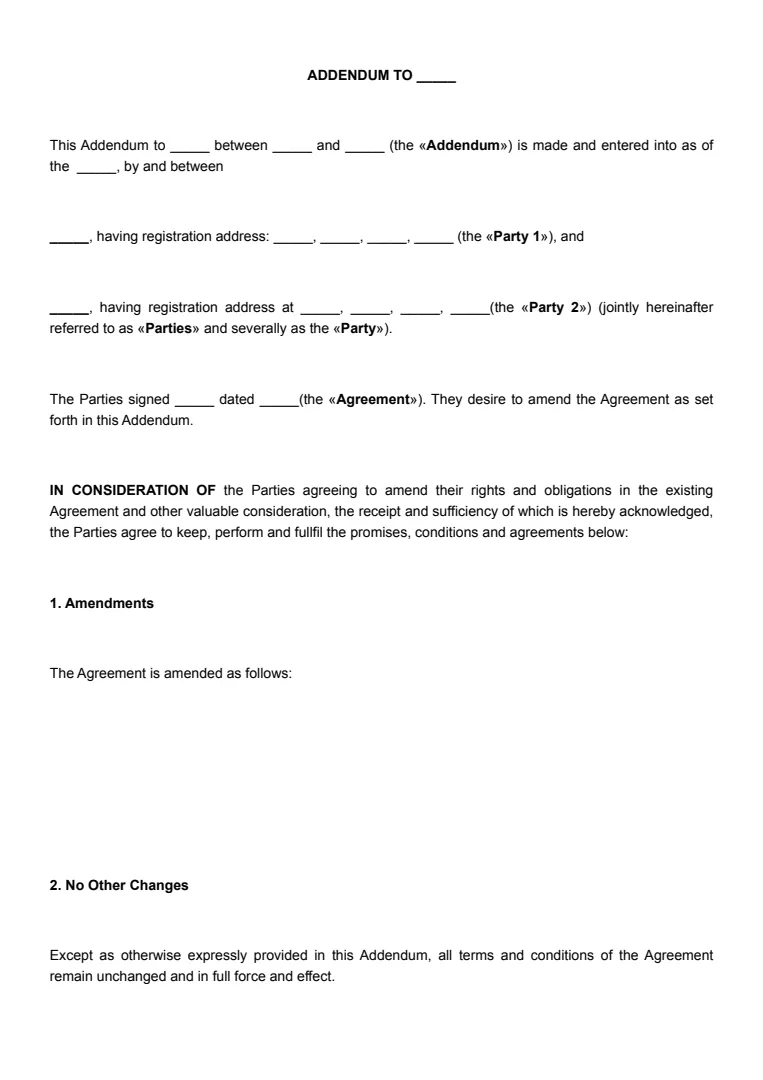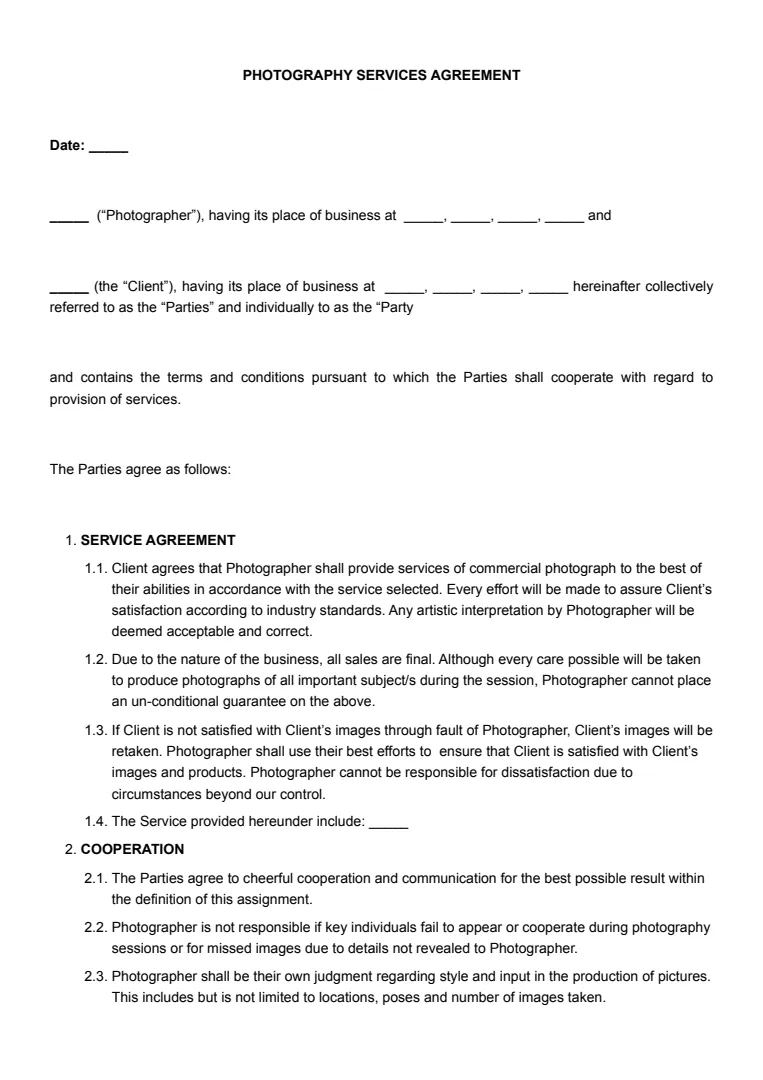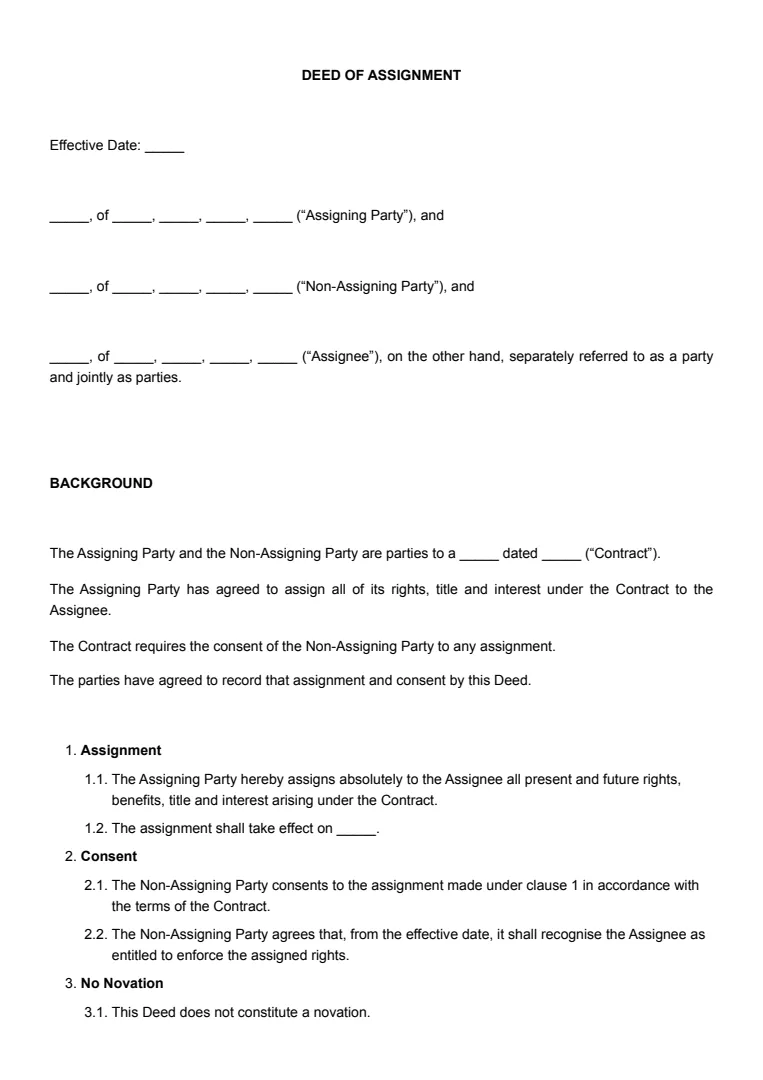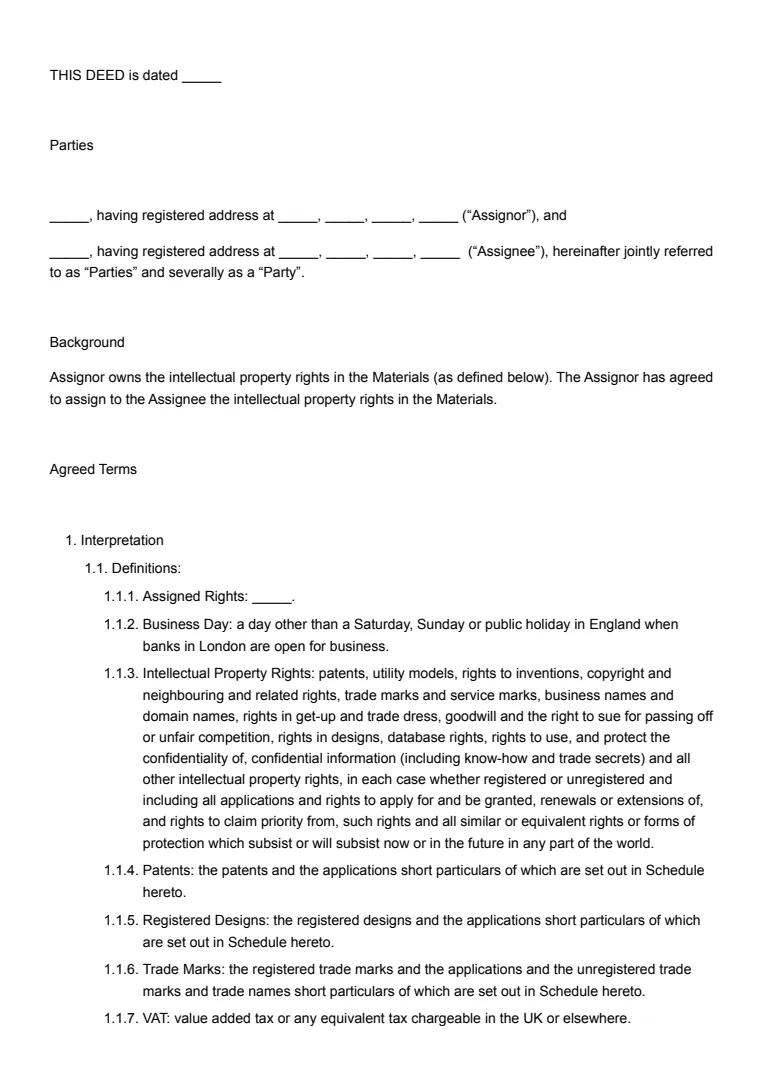What Is a Sales Agency Agreement?
A sales agency agreement, often called a sales agent agreement, is a contract where a supplier appoints an independent representative to act as an agent and sell products or services on their behalf. The agent does not purchase the goods, nor do they take ownership. Instead, they introduce customers and secure sales for which they earn commission.
This distinction from distribution agreements is important. Distributors buy and resell products, assuming both profit potential and financial risk. Agents, however, act only as intermediaries. Because they operate in the name of the supplier, sales agency agreements must detail authority, compliance obligations, and commission entitlements. In the UK, these contracts are further shaped by the Commercial Agents (Council Directive) Regulations 1993, which give agents statutory rights to commission even after termination in certain circumstances.
By having a written agreement, businesses ensure clarity and legal compliance while providing agents with a clear roadmap of their duties and rights.
When Should You Use a Sales Agency Agreement?
Sales agency agreements are useful in a range of business contexts where companies want to expand sales opportunities without the cost or risk of employing staff.
1. Expanding Into New or Overseas Markets
When expanding into unfamiliar markets, businesses often face barriers such as language differences, cultural nuances, and local regulatory frameworks. Appointing a sales agent with established contacts and knowledge of local buying habits can accelerate entry while reducing missteps. A well-drafted agreement ensures exclusivity in a given region, outlines sales responsibilities, and avoids conflicts with other representatives.
For example, a supplier moving into the EU can safeguard their interests by clarifying whether the agent handles only a specific region (e.g., Bavaria in Germany) or an entire country, while also addressing compliance with local competition and consumer protection laws. This clarity provides a stable foundation for growth and reduces legal exposure.
2. Managing Costs and Risks
Building an internal sales team requires significant upfront investment, from recruitment and training to salaries, benefits, and ongoing management. For many businesses, this isn’t feasible, especially when testing new markets or launching unproven products. A sales agency agreement shifts risk by linking payment to performance: the agent is compensated only when sales occur.
This not only preserves working capital but also incentivises the agent to actively pursue opportunities. Furthermore, because agents are typically self-employed or operate through their own businesses, the supplier avoids liabilities tied to employment law, pensions, or redundancy costs. This model provides financial flexibility and scalability while still driving revenue.
3. Specialised or Seasonal Sales Campaigns
In industries where demand peaks at certain times of the year or where specialist expertise is needed for short bursts, sales agency agreements provide a structured solution. For instance, agricultural suppliers may rely on agents to secure orders during planting or harvest periods, while tourism operators might engage agents to sell packages in advance of holiday seasons.
The contract can be tailored to specify campaign duration, commission structures for high-volume sales, and rules for customer follow-up once the season ends. This prevents disputes about ongoing entitlement to commission outside the defined period while ensuring both parties maximise returns during the peak sales window.
4. Niche Expertise or Market Knowledge
Some products or services are so technical or regulated that selling them effectively requires deep industry expertise. A sales agency agreement allows suppliers to harness this expertise without developing it in-house.
For example, in the medical devices sector, agents often need an understanding of healthcare procurement rules, safety standards, and product compliance. In technology, agents with established networks among CIOs or procurement managers can shorten the sales cycle dramatically.
By formalising the relationship in a contract, the supplier ensures that this specialised knowledge is applied to their benefit while protecting sensitive product information and setting clear expectations for how the agent engages prospects. This not only builds credibility with buyers but also strengthens long-term market positioning.
How to Write a Sales Agency Agreement
Drafting a strong sales agency agreement requires careful attention to detail. It should balance the commercial goals of both parties while also addressing regulatory obligations. Platforms like Legally.io enable businesses to generate a tailored, legally compliant agency agreement template (UK) quickly, ensuring all essential clauses are included while maintaining key protections.
Step 1: Identify Parties and Define Authority
Every sales agency agreement must begin with a precise identification of the parties. This includes the supplier’s registered business name, address, and legal entity type, as well as the agent’s full legal name or company details. Beyond formalities, the agreement should spell out the scope of authority.
Can the agent sign contracts on behalf of the supplier, or are they restricted to introducing leads? Can they issue quotations, manage customer service, or only handle sales? If the authority is too broad, the supplier risks losing control over pricing or brand messaging. If too narrow, the agent may feel restricted and underutilised.
A detailed definition of authority strikes a balance, preventing misunderstandings while safeguarding the supplier’s reputation in the market.
Step 2: Specify Commission Structure and Payment Timing
Commission terms are often the most scrutinised part of a sales agency agreement, making precision essential. Agreements should explain not only the commission rate but also the calculation basis: gross sales, net of discounts, or after taxes and shipping deductions. Timing matters too, whether commission is paid immediately after a customer signs, once funds are received, or on a quarterly cycle.
To reduce disputes, contracts can include worked examples showing how commissions apply in various scenarios, such as repeat orders, bulk discounts, or multi-stage payments. It’s also wise to address whether the agent is entitled to commission on sales closed after termination if the deal originated during the agreement period, a common source of litigation under the UK Commercial Agents Regulations.
Expert Tip:
“Include worked examples in the agreement to show how commissions are calculated. For instance, demonstrate how a 10% commission applies to a £50,000 order, and clarify whether deductions like VAT or shipping are included. Real examples reduce confusion and strengthen trust between parties.”
Step 3: Define Territory and Exclusivity
Territory definitions extend beyond geography, encompassing industry sectors, product lines, or sales channels. For example, a supplier might grant an agent exclusivity for “all retail sales in Scotland” but reserve the right to sell directly to government clients.
Exclusivity clauses must strike a balance between motivation and flexibility; granting too much territory could prevent the supplier from pursuing other opportunities. On the other hand, non-exclusive arrangements may demotivate agents who feel they are competing with others for the same customers.
To manage expectations, exclusivity should be clearly time-bound, and agreements should clarify whether exclusivity applies to renewals or only to new customer contracts.
Expert Tip:
“Be explicit about both the geographical area and product lines covered by exclusivity. For example, grant exclusivity in London for retail sales only, while reserving online sales for the supplier. Clear boundaries prevent overlapping claims and wasted resources.”
Step 4: Set Duration and Termination Conditions
The term of the contract determines stability in the relationship. Fixed-term agreements (e.g., two years) provide security but may lock both parties into arrangements that no longer work. Rolling contracts with periodic renewal options provide flexibility but can create uncertainty.
Termination clauses must be drafted carefully, outlining both with-cause (e.g., breach of duty, failure to meet sales targets, insolvency) and without-cause termination rights. Notice periods, often three to six months, allow both parties to plan for transition.
Under UK law, agents may be entitled to compensation or indemnity when agreements end, regardless of what the contract says. Suppliers should therefore plan termination provisions with statutory obligations in mind to avoid costly surprises.
Expert Tip:
“Always outline both with-cause and without-cause termination rights, and specify notice periods in writing. Consider including post-termination commission rights, as UK law may grant agents compensation if the agreement ends without proper protections.”
Step 5: Add Compliance and Confidentiality Provisions
Since sales agents act as an extension of the supplier, compliance and confidentiality provisions are non-negotiable. Anti-bribery clauses aligned with the UK Bribery Act 2010 prevent agents from offering unlawful inducements, protecting the supplier from liability.
Confidentiality obligations should cover sensitive information such as customer data, pricing models, or trade secrets, and extend beyond the termination of the contract. In today’s regulatory environment, the agreement should also address compliance with the UK GDPR, especially if the agent handles customer data on behalf of the supplier. Including these clauses reassures both parties that sensitive information will remain protected and reduces regulatory and reputational risks.
Expert Tip:
“Do not rely on generic confidentiality language. Tailor provisions to cover sensitive pricing data, client lists, and intellectual property, and ensure GDPR compliance if personal data is involved. Strong protections reduce the risk of breaches and regulatory fines.”
What Should a Sales Agency Agreement Contain?
A well-drafted sales agency agreement typically includes:
- Purpose and Scope – The reason for the agreement and what role the agent is expected to perform.
- Parties Involved – Full identification of supplier and agent with registered details.
- Commission and Payment – A clear commission model with examples to avoid disputes.
- Exclusivity and Territory – Rules on whether the agent has exclusive or shared rights.
- Duration and Termination – Term length, renewal conditions, and notice periods.
- Confidentiality and Compliance – Data protection, anti-bribery, and confidentiality clauses.
- Dispute Resolution – Preferred method of resolving disputes, such as arbitration in the supplier’s jurisdiction.
These elements provide clarity, legal enforceability, and fairness for both sides. Without them, agreements risk ambiguity that could lead to disputes or regulatory penalties.
Legal Tips for Writing a Sales Agency Agreement
- Stay Aligned With Jurisdictional Laws: Each jurisdiction has different laws governing agency relationships. In the UK, agents are protected by the Commercial Agents Regulations, which may grant compensation on termination even if the contract is silent. Suppliers should draft with these protections in mind to avoid unintended liability.
- Be Explicit on Exclusivity: Ambiguity around exclusivity is one of the leading causes of disputes. Clearly specify whether the appointment is exclusive, sole, or non-exclusive, and define its scope in terms of geography, product line, and duration.
- Protect Confidential Data and Intellectual Property: Confidentiality provisions should extend beyond the termination of the agreement. This protects sensitive supplier information, including pricing, product designs, and client lists, from being used competitively after the agent relationship ends.
- Put Everything in Writing: Oral agreements are difficult to enforce and often lead to costly disputes. A properly drafted contract, supported by a customisable agency agreement template from Legally.io, ensures all parties have a clear and enforceable understanding of their obligations.
Key Takeaways
Sales agency agreements provide the framework for relationships between suppliers and agents, striking a balance between commercial opportunity and legal protection.
They establish commission structures, define roles and territories, and safeguard sensitive business information.
Clear agreements help businesses scale efficiently while minimising disputes.
By addressing compliance requirements and statutory protections, suppliers and agents can build long-term, mutually beneficial relationships.















